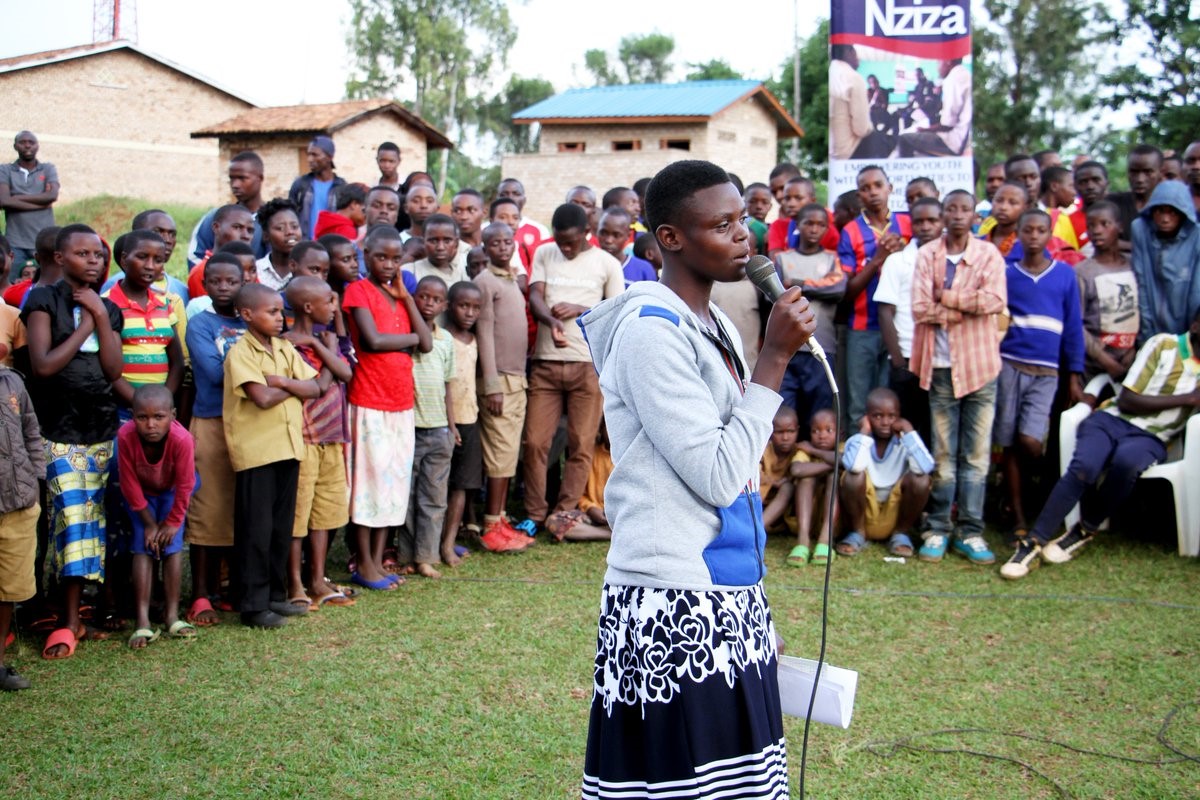There are several challenges that continue to affect youth participation. The main one encountered by young people is the active collaboration between young people and local authorities. Young people are not taken seriously, or not consulted in the decision making process when it comes to youth policies or other decisions that concern them, which makes them feel like cannot access their potential. Youth said that this lack of support from local authorities and from financial and structural perspectives makes them feel left out of decision-making. In order to enable all young women and men to optimize their potential and empower them to contribute to the sustainable development of society and decision making, youth were urged to learn new skills and take responsibility for their actions.
Never Again Rwanda acknowledges this problem and in response, decided to launch Inzira Nziza; a 3-year project funded by USAID Rwanda and implemented by Never Again Rwanda in 5 districts of Rwanda; Nyamagabe, Gisagara and Huye (in the Southern Province), Nyabihu and Ngororero (in the Western Province) which trained young people and gave them an opportunity to fully participate in society.
In two years of implementation, Inzira Nziza has used approaches like Roundtable discussions with the sector and cell officials, confidence-building sessions, youth participatory theatres, policy dialogue, meet your MP, Radio and TV shows on youth participation in politics, as well as the Birandeba campaign (an awareness campaign) to increase youth participation. The Inzira Nziza project was geared towards equipping young people with the necessary capacity and skills that would help them raise their voice, identify opportunities to participate in decision making and eventually influence their local leaders and policymakers.
Through these various approaches, Inzira Nziza has managed to create awareness on of the principles of democracy and human right values, increase youth commitments to stronger participation and active citizenship, as well as improve collaboration between youth and local leaders.
Past Achievements
In the five districts, training was attended by 488 participants in total (209 female and 279 Male) representing the National Youth Council, Sector and Cell youth schemes, large youth cooperatives, NAR clubs and associations, and local leadership.
Through the implementation and monitoring of Inzira Nziza activities in five districts, Never Again Rwanda realized that there were gaps, specifically the youth’s limited skills in participatory decision making and democratic governance. NAR further observed a limited understanding among local leaders on how to engage youth in the democratic processes and decision-making at all stages.
Project Impact and Youth Initiated Activities
The Inzira Nziza project has come up with youth initiated activities in different districts. For example, Genevieve Uwineza, from Cyanika sector, brought together 15 street children and has been working with them to conduct campaigns to raise awareness for the rights of children. Among other initiated activities, saving groups were created (2,000,000 FRW) in Buruhukiro sector, 16 pigs were distributed among 26 youth and civic education training took place for students during the holidays (intore mu biruhuko) in Mukamira, Ngoma and Gatumba. Additionally, campaigns on the fight against drug abuse and teenage pregnancies took place in all districts.
As a result, some districts increased budgets for youth activities (Nyamagabe & Ngororero). A policy is also to be enacted in order for youth cooperatives and new businesses to be exonerated from taxation for a period of two years. Furthermore, in 2018, Nyabihu district invested 877,979 FRW in, Bigogwe, Mukamira & Karago sectors.
Future Prospects for the Third Year
Inzira Nziza activities have been identified as the key areas to focus on in the third year. These activities include increasing TV Shows and Radio shows that voice youth issues, and increasing awareness on the importance of engaging government institutions in youth related dialogue through online platforms. Inzira Nziza project also plans to promote dialogue exchange between youth champions and district officials and undertake assessment to identify local youth-oriented CSOs and train CSO members on policy analysis and advocacy. Furthermore, the youth advocacy network in all five districts will also receive this training while media houses are to receive evidence-based advocacy media training; CSOs media initiative platforms will be identified and supported.
New activities will be introduced to deal with other existing issues such as youth unemployment, poverty, youth apathy towards political participation and national affairs, and limited information and skills that can be used to engage youth in political life.


